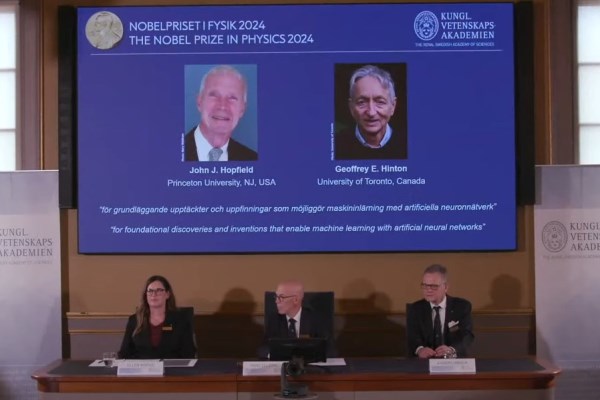2024 Nobel Prize in Physics: Two Scientists Co-create AI Revolution

The 2024 Nobel Prize in Physics was announced on the afternoon of October 8, Taiwan time, with the laureates being American scientist John J. Hopfield from Princeton University and Canadian scientist Geoffrey E. Hinton from the University of Toronto. Their groundbreaking work in the field of artificial neural networks was recognized, as it not only laid the foundation for machine learning but also advanced the development of deep learning technologies, significantly transforming science, engineering, and daily life.
Hopfield, aged 91, is one of the key pioneers in the field of artificial neural networks. In 1982, he proposed a neural network structure capable of storing and reconstructing information, known as the "Hopfield Network," which has been widely applied in associative memory models and paved the way for machine learning technologies. Originally specializing in solid-state physics, Hopfield later ventured into molecular biology and neuroscience. His boldness in crossing disciplinary boundaries made him a trailblazer in the field of artificial intelligence (AI).
Hinton, now 76, is often called the "father of deep learning." In 1986, he introduced the backpropagation algorithm for training multilayer neural networks, providing a revolutionary method for artificial neural network training and becoming the core of modern deep learning technologies. He also developed the contrastive divergence algorithm, further advancing the field of machine learning. Hinton has long believed that AI will have a profound impact on the future and has repeatedly warned of its potential risks, suggesting that its influence could surpass that of the Industrial Revolution.
Ellen Moons, chair of the Nobel Physics Prize Committee, stated that the research achievements of Hopfield and Hinton have transcended the boundaries between physics and artificial intelligence, demonstrating how the principles of physics can drive advancements in AI technologies. Moons also emphasized that artificial neural networks have already played a significant role in various fields of physics, such as particle physics, materials science, and astrophysics, and that this technology will continue to reshape human society in the future.
- 155 reads
Human Rights
Fostering a More Humane World: The 28th Eurasian Economic Summi

Conscience, Hope, and Action: Keys to Global Peace and Sustainability

Ringing FOWPAL’s Peace Bell for the World:Nobel Peace Prize Laureates’ Visions and Actions

Protecting the World’s Cultural Diversity for a Sustainable Future

Puppet Show I International Friendship Day 2020

